- Home
- Paullina Simons
Road to Paradise Page 30
Road to Paradise Read online
Page 30
She told us that Floyd had come out to West Virginia for a family funeral. His folks had been cattle-ranching in South Dakota for generations, and soon they returned home, but Floyd stayed behind with rels. He and Candy met at Our Lady of Martyrs, where they both sang in the choir and became tight.
“Tight? Or thick as thieves?” Gina asked. “Floyd. What a name. Does he look like a Floyd?”
“Sure does.”
“You’d think Floyd wouldn’t want God to know him by his name,” mused Gina.
“I guess. I wish God wouldn’t know me by Candy. Grace is so much better.” Candy sighed with conflicted resignation. “But.” She shrugged. “Candy made me more money.”
“It does reveal the essence of the thing, don’t it,” I said, glancing at her in the rearview mirror. Candy. Like a strawberry lollipop. Without makeup, plain and waving on the side of the road. Grace.
Like this we rode the sea of sage and brush and rolling grasslands, not seeing a soul until deep in South Dakota when we got onto I-90. Candy slunk down on the seat again, the hundreds of trucks unsettling us, so we took the next exit and drove the parallel service road instead. It was almost six.
It looked like it was about to rain; by the time we got to Wall Drug, black covered nearly the whole sky. It was dinnertime, yet the place was empty. Wall Drug maybe began as a drugstore years ago, but when it decided to become a tourist attraction, it branched out into a restaurant and a trinket shop. Perhaps they had some Band-Aids and an aspirin hidden somewhere, but on display were stuffed jackalopes.
Candy came up to a man behind the counter. “I’m looking for Floyd,” she said. “He around?”
“Floyd?” said the man gruffly. “Floyd Lashly? He don’t work here no more.”
“But I just spoke to him and he told me to meet him here.”
“I don’t know what he told you, all I know is, I fired his ass three weeks ago and haven’t seen him since.”
Candy shook her head, not comprehending. “No, no. He’s worked here two years.”
“I know! I hired him, I fired him.”
“He told me to meet him here,” Candy said, but the burly plaid-shirted guy had turned away.
She called the number she had for him, but no one answered. “I don’t understand,” she whispered to me and Gina after dialing twenty times. “I just spoke to him yesterday.”
“Maybe he’s not home?” Gina said helpfully.
“I came all the way from West Virginia to see Floyd,” Candy said to the woman serving coffee and toffee donuts, her voice breaking. “He just moved out from his folks a little while ago. Do you know where he lives now?” Standing behind her, I didn’t see her face, but I saw in her strained calf muscles intense anxiety. “Please,” she whispered. “Please. He’s my friend.”
The coffee was cold and weak, the donut pretty good. The lady shook her head. “He left on bad terms. I don’t got that information.” She was not particularly friendly or sympathetic, but she was a woman, and she saw something in Candy’s glazed despair that obviously made an impression on her. The manager yelled at the waitress to get back to work, “before he fired her ass, too.” She picked up a coffee pot, poured some into a cup for Candy, fussed with another donut, and as she took two dollars from her, said, “Go through the Badlands, at the junction of 44 and 240 there be a town called Interior, you’ll see a yellow trailer with a red roof. That’s Floyd’s.”
Candy smiled. “Okay,” she said. “Thank you.” She gave the woman a ten-dollar tip and left, without taking either the coffee or the donut.
“Take the donut, Cand,” I said. “It’s delicious.”
“Suddenly, I lost my appetite. I’ll get hungry again when we find Floyd.”
“Candy,” said Gina, “what does he do? Keep the money you send him under his pillow?”
“I don’t know where he keeps it.”
I didn’t say anything. I was not the kind of girl who said, oh, you’re going flat across the entire country to find your mother, but what if she doesn’t want anything to do with you? And so, in this instance, neither was I the kind of girl who said, even teasing, so you called this Floyd yesterday to tell him you’d meet him today at six, and he said okay, sure thang, sweetheart, and when you got there, you found out he’d been fired three weeks ago Tuesday. This doesn’t crash alarm bells through your head? It wasn’t my style, particularly if I suspected that the teasing struck too close to the truth, so I kept my mouth nice and shut as we crossed the divided highway and drove south into Badlands under the black sky. The summer tourists must have heard a storm was coming: there was no one on the road except Bambi, his mother, and us.
“Badlands,” I said to Gina, as a matter of statement. “Didn’t Bruce Springsteen write a song about them?”
“Who?” Candy said from the back.
Gina and I both groaned theatrically.
And from the back, we heard her voice, lowered two octaves, suddenly sing, I believe in the faith that could save me . . .
When she saw our comically struck faces, she threw her head back and laughed her singsong, contagious childlike laugh. “Badlands I know,” she said.
It was an endless winding way through the Badlands to Interior. The turns were hairpin and we could go no more than twenty miles an hour. The black clouds hung ominously overhead. A few times it felt like I could easily slip off the road. Once I got so scared we had to stop at a scenic view to collect my bearings, which I had lost around the last hairpin. Candy wanted to keep going. There was a twitchy nervousness about her. “Come on,” she kept saying. “Come on. Let’s go.” But I had to stop long enough for my hands to stop shaking. It was Gina who got us through it. Gina, who looked out her open window and said, “Oh my God, will ya just look at this?”
We looked, but we were too preoccupied with our fears to fully appreciate what we were seeing. “Girls, do you even see what I see? You two are unbelievable. Three days you gawked at a field in Iowa, you were breathless about sand, and don’t even get me started on grass in South Dakota. ‘Loooook, grass! It’s God, oooh.’ And here’s something you’ve actually never seen before, and you couldn’t care less.”
Candy and I pretended to care. For five minutes we stood at the top of a crest overlooking what seemed to be the entire north of all the Dakotas, north and upward to the dangerous sky.
“The Sioux Indians,” said Candy dully. “They stood right here, motionless, watching buffalo at sunset. They would take out their suncatchers, little bits of stone and wood with holes in them, to reflect the sun into the buffalo’s eyes. The buffalo would become dazzled, one would buck, then another, there’d be a confusion, then a stampede. That’s when the Indians would run down the hill and slaughter the animals that had fallen in the frantic run. They would have food and skins for the winter.”
Gina and I stared at her like she was a buffalo.
She pointed to the National Park sign at the edge of the view. “INDIAN SLAUGHTER GROUNDS.”
“All right, let’s go,” said Gina, reaching for a word of comfort and failing to find it. All I could see was Erv sitting across from me, his ice eyes trying to penetrate my secrets, and now that I knew what kind of a man he was, it made it harder for me to look straight at Candy. Too much vivid imagining. If we hid, our hiding gave us away. If we remained in plain sight, our gawking gave us away. Everything gave us away while we were exposed on the plains like this.
“Why would Floyd lie to me?” Candy asked. “Maybe he forgot. Do you think so?” She sounded scared.
“I think so, Candycane,” I said, squeezing her arm, not lifting my eyes. “He just didn’t want you to worry. He’ll be home. You’ll see. Come on.”
The Badlands are a steep rock gully, an intricate, meandering ravine of eroding sedimentary rock that goes on for a hundred miles. I wished we could look at it with eyes not dimmed by Candy’s worry and my lies. As I was making razor turns down steep inclines between mountains of prehistoric rock, it started to rain again.
Pretty soon it was so heavy I could see nothing but the streaming hood of my yellow Mustang. I had to stop, but there was nowhere to pull off. We were stuck on a two-lane road going blind down a mountain pass, so we idled in the car, but that inching forward was even more frightening. At any moment, someone could come plowing into me from behind, send me flying into the ancient clay and mud. We just sat, waiting for something bad to happen. “Hence, the name,” said Candy. “Badlands.” She was no longer serene. “Come on, Shel. Please try to hurry. It’s just a few more miles, right? We’re almost there.”
3
Broken Hill
It took us two hours and five minutes to make the 33-mile journey to Interior. The rain had stopped, and the sun was setting behind the wet rocky Badlands, which were now behind us, too. The town of Interior was a gas station, closed, a produce stand, closed, a bar, open, and a mini-mart, closed. The few dilapidated trailers were peppered right on the sagebrush. We saw Floyd’s yellow trailer with the red roof right away. It was hard to miss. Candy made us wait in the car while she walked up the rickety steps and knocked on the door. With her gamine legs, slender white arms, and spiky hair, she looked small, so vulnerable standing by the metal door, knocking with one hand, holding on to the rusted railing with the other.
No one answered. She came back to the car. Her eyes were wandering. He wasn’t home, Candy said, like a truism. What did we do now?
Nothing to do, Gina said. “Let’s go to Rapid City, rest a bit, and come back tomorrow.”
Candy shook her head. “You don’t understand.”
“We do.” I touched her hand, clutching my driver door.
“No.” She shook her head vehemently. “You don’t. This money is my life. Without it all the plans I’ve made are ruined. I can’t leave until I get my money. Everything I’ve worked for and planned for is with Floyd. I’m not going anywhere till I see him.”
“What about Jessica in Reno?” I said beseechingly, cajolingly.
“She’s got a few bucks,” she cried, “but Floyd’s got twenty grand. Do you see the difference?”
“I do, I do. He could’ve gone on vacation.” I didn’t add, with your money.
“There’s nothing to do around here,” said Gina. “If he’s not home, where is he? We know he’s not at work.”
“Maybe he found another job,” I said.
“Yes. Or,” said Gina, “he could be in Rapid City himself. It’s Friday evening, after all.”
“Saturday,” I corrected.
“Even better. He’s out clubbing. He’s a young guy? Clubbing it up.”
“Saturday night, clubbing it up before church on Sunday?” Candy was dubious.
“What’s the difference?”
Candy waved her off.
“Gina’s right about one thing, Cand,” I said. “We could wait all night.”
“Then that’s what we’ll do. Wait all night.”
“No!” Gina exclaimed. “I’m not sleeping another night in the car.”
“You hardly slept last night, girlfriend,” said Candy. “You were in the Argosy with me.”
“I’m not staying all night in the middle of nowhere!”
I hated to admit it, but Gina was right. This was in the middle of nowhere. If I had black visions in a full parking lot in Sioux City, think what might happen here, on the edge of the Badlands, with only grassland in the other three directions, and not a light in sight, nothing but the gas station and trailers with their rusted railings. And because I’m not that kind of girl, I didn’t want to point out the obvious: that a person who would live in this kind of trailer would hardly be the type who had made twenty thousand dollars for himself and kept another twenty thousand dollars safe for a friend.
“I’m not going anywhere,” said Candy, “until I speak to Floyd.” She turned away from the car. “Go if you want.”
I exchanged a look with Gina, who shrugged. “Great. Let’s go.”
“Something tells me the girl don’t mean it,” I said, turning off my engine and heaving a childish sigh of distress.
One thing about sitting on the hood of your car while waiting for a stranger to return to his trailer to give you back the money he owes you is this: it’s scary in Interior. I thought I’d feel safer with no trucks speeding by, but the town was so isolated and the Badlands so ominous, just shadows now that the sun had gone. As the last purple light faded from the sky, an eerie quiet settled on the land, and I just knew that at the moment when the sky finally shaded from violet to black, there would be neither sight nor sound and I would long for the din of a thousand trucks hurtling along the interstate. I really needed Floyd to come home before night fell.
I asked Candy to put on a pair of jeans. With the Horseshoe Bar right next door, I didn’t feel safe with her pale bare legs stretching out on the hood next to me. The bar was on mute, too, as if there were furtive goings-on inside. The road, U.S. 44, stretched straight through the grassland to Rapid City. Rapid City, where there would be lights, people laughing and eating. I jumped off the hood and leaned against the car. It had been a long time since Valentine, where we’d eaten real food, the sticky toffee donut at Wall Drug not counting. Funny how you could go without food for so long, and then suddenly be famished, ravenous, thinking about burgers and fries, onion rings, and pickles dripping vinegar into coleslaw. I wished I were back home, on my little couch, getting ready for a quiet evening of TV, a little Jeopardy, and Dallas, and Emma in the kitchen asking if I wanted lemon with my tea.
Gina didn’t seem to feel the same way I did about Interior. She was sitting on the hood of the car, next to Candy, humming to the radio. It was playing quietly; loud seemed obnoxious here.
I got back into the car and drummed the wheel, watching Gina and Candy’s backs and butts against my window. They were chatting. How long had we waited? Only an hour, it turned out. Insufferable.
Gina and Candy announced they were going to the Horseshoe to get some food. I shook my head vehemently, bounding out of the car.
“But there’ll be food.”
“Let’s wait.”
“But we’re hungry now,” whined Gina.
“I’m not going into that bar.” I propped on the hood, faking casualness.
“Why not?”
“You figure it out,” I replied. What a stupid conversation. “Three girls in the middle of nowhere, going inside a bar with drinking men who live in a place like Interior? Are you out of your mind? How do you think you’ll protect yourself there?”
“Why would we need to?” said Candy.
“Candy, you are out of your mind,” I said. “They’ll assault you, then kill you and throw your body in the brush over there, and then kill me, too. We won’t be found for a thousand years, not even a thought of us will remain in anyone’s head.”
“Fine, Drama Queen, stay,” said Gina, complacent and unconcerned. “We’ll go. We’ll bring you back something.”
I started to say, okay, do whatever you want. But I stopped. I hopped off the hood. I slammed shut the open car door; the sound echoed in the prairie. “No, Gina.” I was adamant. “We either go to Rapid City, or we stay here. We’re not going inside that place.”
“You don’t have to.”
“And you won’t. I don’t know how to spell it out any clearer, how I can be more plain. You can’t go in there, because if you do and something happens, there’s only me out here. When they’ve finished with you they’ll come for me, and I won’t be able to do a single thing to help either you, or myself. Now do you get it?”
That stopped Gina in her tracks. “Okay, okay. Take it easy.” She motioned to Candy. “Come on, let’s go.”
“Gina, Candy, if you two go,” I said, left with no choice, “I will get into my car and leave you. I will not stay here another minute. Now, decide what you want to do.”
Gina turned. “Don’t threaten us, Shelby.”
“I’m not threatening you. You’re not my child. I can’t tell you what to do. But this is my
car, and my life, and I am going to get into my car and drive the fuck away if you set one foot in there.”
Candy defused the situation; she stepped away from Gina, toward me. “She’s right, Gina,” she said. “Let’s not be foolish.” She sprung back on the hood and lifted her hands up to the sky. “From the deep water, I cry to you,” she intoned. “Hear my prayer.”
To escape the mugginess of my own resentment, I moved a few feet away from them, leaned against a wooden post, listening for cars on the road, milling, kicking up dust. Why couldn’t Gina see the truth of things without my having to point it out so forcefully?
Seems I couldn’t see the truth of things myself too well, either.
I cried out to God with my voice, sang Candy. And he gave ear to me. She lifted her hands again. My hand was stretched out in the night without ceasing. I complained and my spirit was overwhelmed. I remembered God and was troubled. I am so troubled I can’t speak . . .
She turned to me. “I know you’re hungry and you want to go, Shelby. Honest, you can go. I won’t be upset. But I can’t go. There’s no other time for me. There is Floyd and my money, or my life is over.”
Reaching into her hobo bag, she pulled out a postcard. It was getting hard to see, but it was a picture of a band of green light over a night sky. “A postcard!” said Gina. “Excellent.”
“It’s a postcard from Paradise,” said Candy. “A few years ago, Paradise, which is not near the North Pole, got Northern lights streaking across the sky. Apparently a unique phenomenon in that part of the world. Hence the postcard.”
“So you’re going to Paradise,” I said slowly, “to catch some Northern lights?”
“Foolish,” said Candy. “Turn the postcard over.”
On the back of the card, beside the address, were two words in sloppy teenage print.
Mike died.
That’s what it said, and that’s all it said. Gina and I twisted our mouths, glanced at each other, squinted our eyes. “Is this your Mike?”
She nodded. “Let me tell you a story of three boys,” said Candy. Not a single car had passed through Interior in an hour. “Three boys went out partying and drinking on a Saturday night.”

 The Summer Garden
The Summer Garden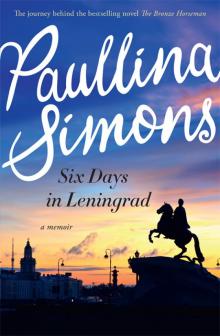 Six Days in Leningrad
Six Days in Leningrad Bellagrand
Bellagrand Tatiana and Alexander
Tatiana and Alexander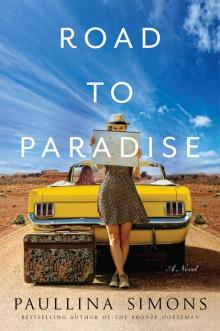 Road to Paradise
Road to Paradise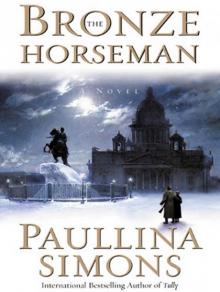 The Bronze Horseman
The Bronze Horseman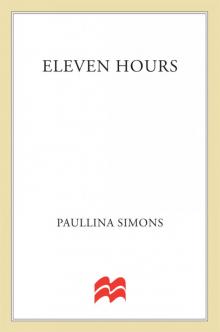 Eleven Hours
Eleven Hours Tatiana's Table: Tatiana and Alexander's Life of Food and Love
Tatiana's Table: Tatiana and Alexander's Life of Food and Love The Girl in Times Square
The Girl in Times Square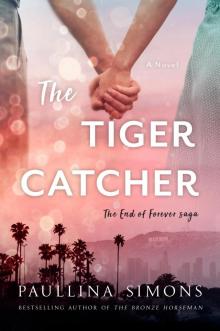 The Tiger Catcher
The Tiger Catcher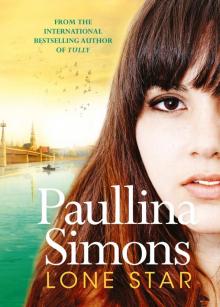 Lone Star
Lone Star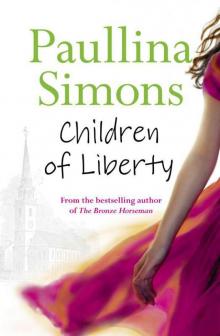 Children of Liberty
Children of Liberty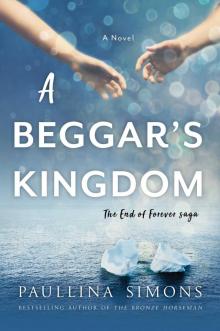 A Beggar's Kingdom
A Beggar's Kingdom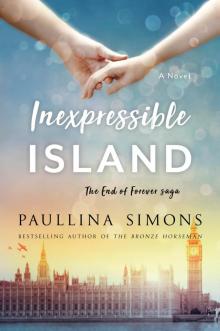 Inexpressible Island
Inexpressible Island Tatiana and Alexander: A Novel
Tatiana and Alexander: A Novel Tatiana's Table
Tatiana's Table A Song in the Daylight (2009)
A Song in the Daylight (2009)